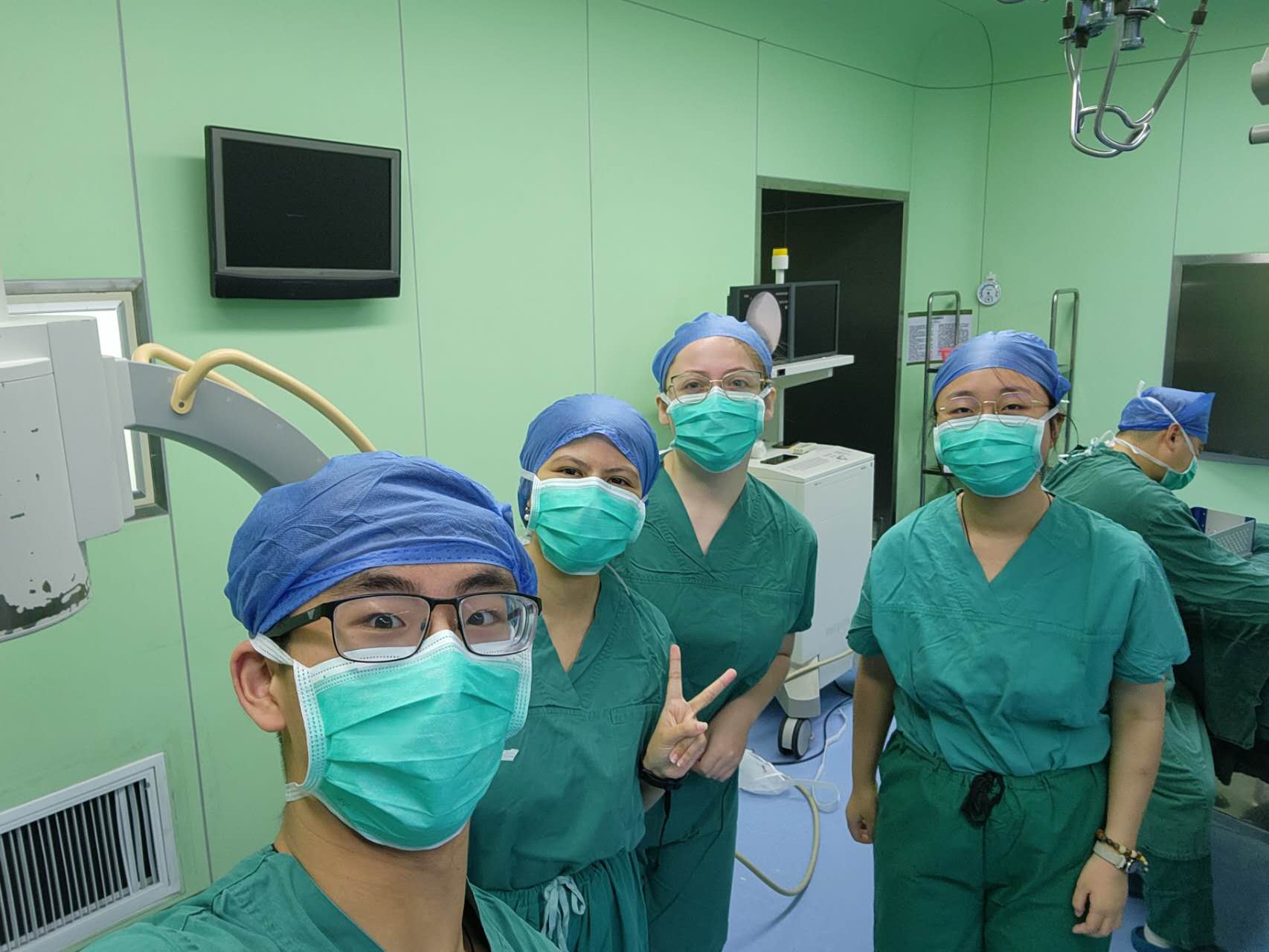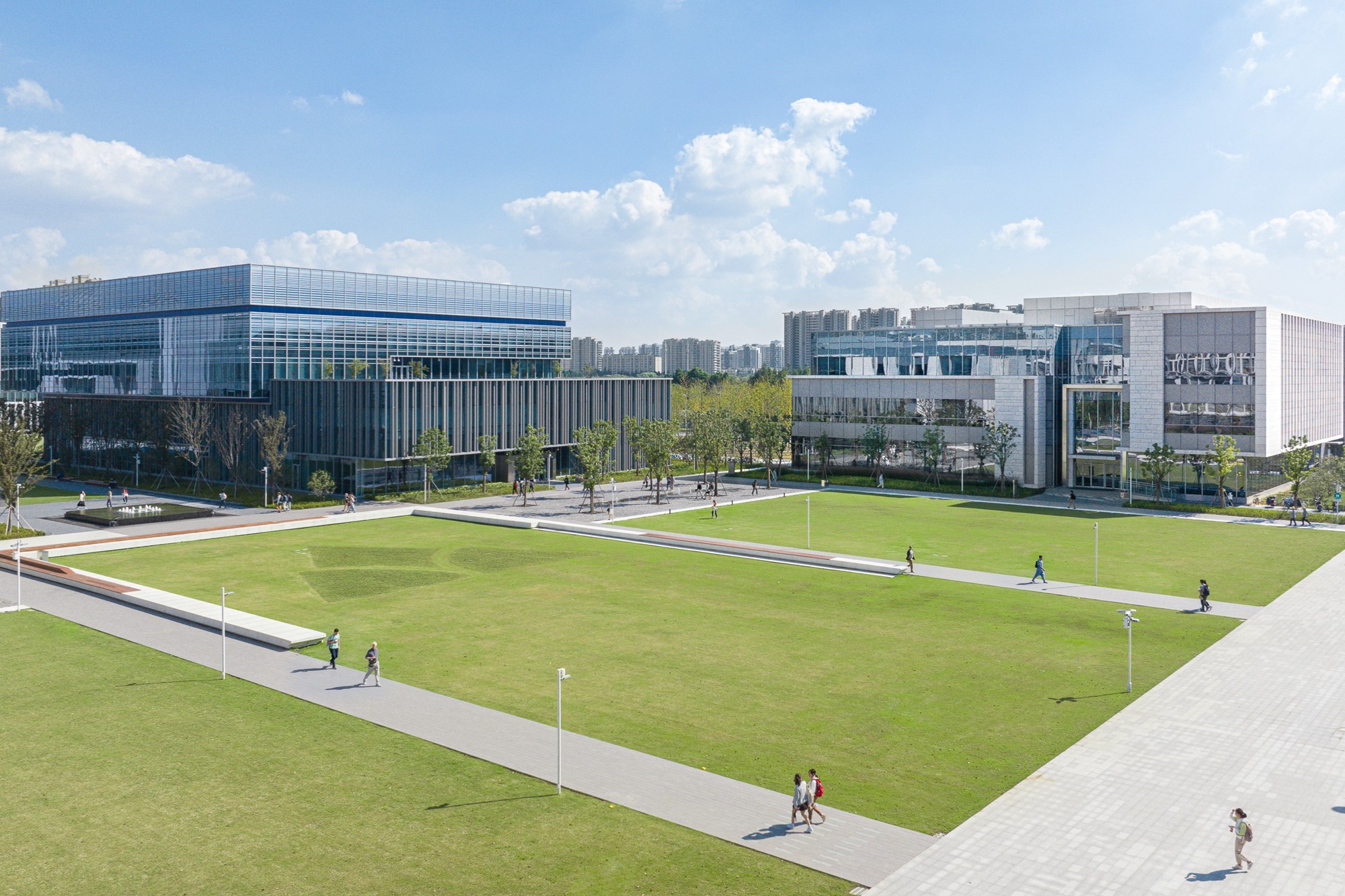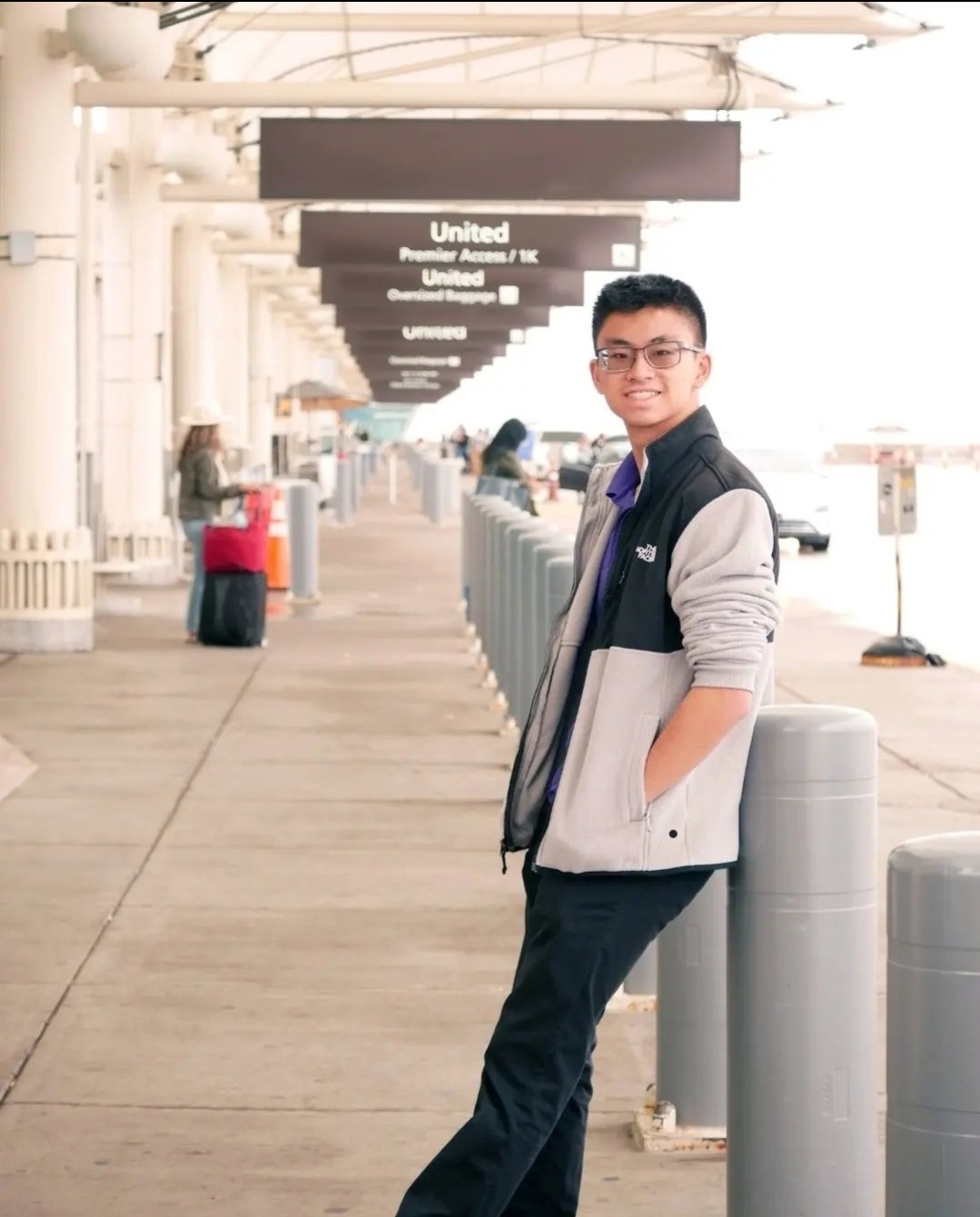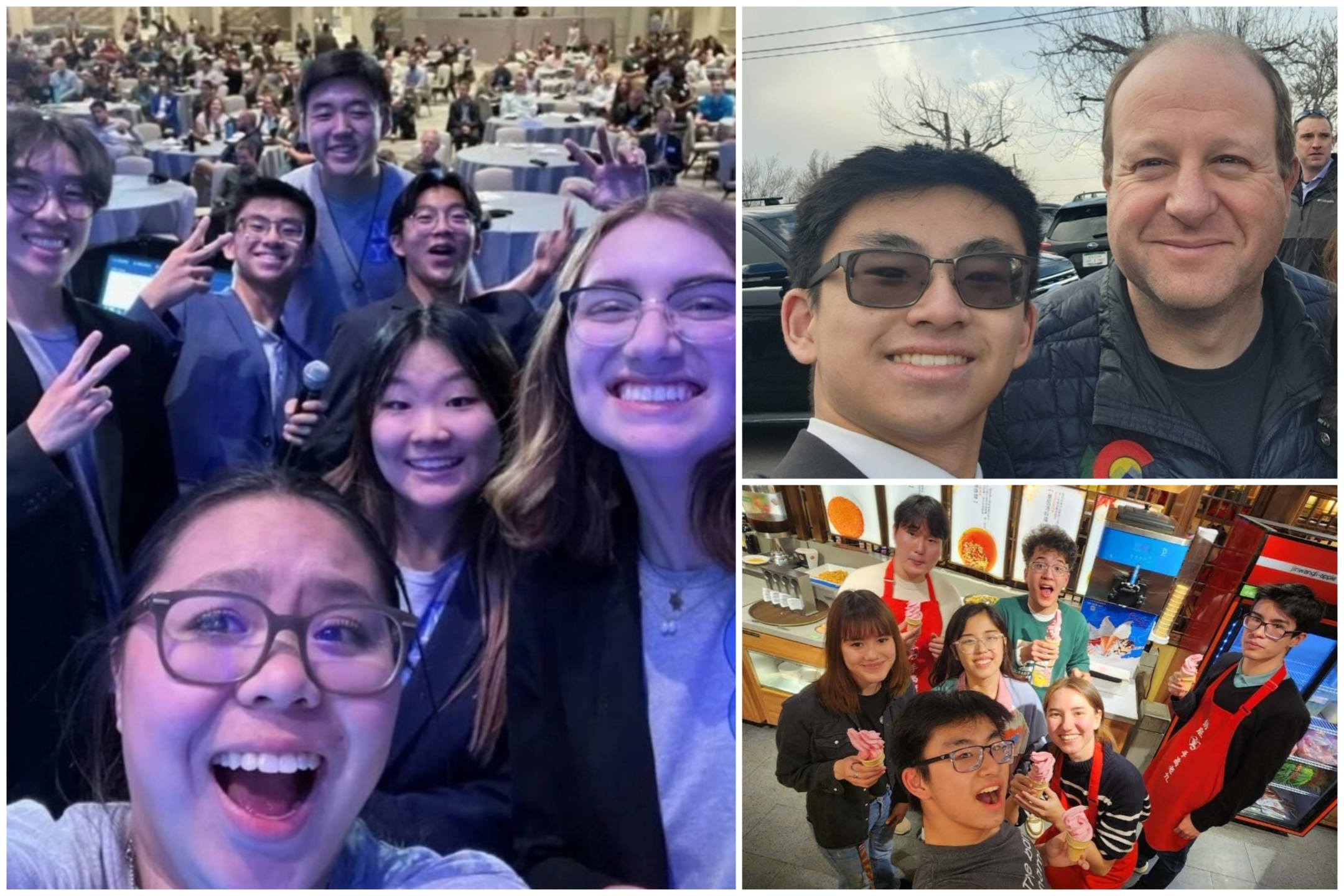Before arriving at Duke Kunshan University, Kris Sun had only left the United States once – to visit his parents’ ancestral home in Macau, China.
Coming from a Cantonese-speaking family and having never previously stepped foot on the Chinese mainland, he saw his lack of Mandarin as a curse when settling in Kunshan as part of the undergraduate Class of 2027. Then he made the decision to change his mindset.
“Coming to China was my first time traveling alone,” said Sun, from Colorado. “I was completely on my own and then there is the aspect that I’m a Chinese American who doesn’t speak Mandarin.
“Originally, I saw it almost as a curse because people approach you and they assume you can speak Mandarin.
“But then I decided to reframe it as a goal that I can work toward, to one day be able to speak as if I were native Chinese. And I’m gradually making progress.”

Immersing himself in the language was not Sun’s only priority when he joined DKU in August 2023; he was also keen to take full advantage of the many opportunities to engage in important research.
“I wanted to jump into research straight away, so in my first week at DKU I went to my biology professor’s office and asked if there were any opportunities,” Sun said.
“Getting involved in projects in your field of interest is also a great way to make friends. Together we spoke to the professor and now we’re researching the spice molecule capsaicin and its effects on cancer.”
Sun and his fellow first-year researchers are already actively looking at the potential for capsaicin to inhibit the growth of cancer cells in triple negative breast cancer. They are working with Dr. Anastasia Tsigkou, an associate professor of biology at Duke Kunshan and an expert in this area.
“The research opportunities at DKU are astounding,” Sun said. “The sheer amount of what is available for undergraduates is incredible for such a small student population. It’s one-of-a-kind in that sense and it’s here in China.”

While Sun is restless to improve his Chinese language skills and to get involved in student-faculty research projects, he is taking a more gradualist approach to his ultimate goal: a career in medicine.
In 2023, he became the first student to be conditionally accepted into the Duke Kunshan–Duke-NUS Medicine Pathway, which provides an intentional route for DKU undergraduates to embark on medical training in Singapore after graduation.
The pathway aims to nurture not only outstanding clinicians but also the next generation of leaders, policymakers and researchers.
Sun believes his desire to pursue a wide variety of academic interests outside of medicine such as politics and gender/sexuality while at DKU was seen positively by the senior doctors who interviewed him for the pathway.

“I’m someone who’s very interested in medicine and intends to pursue it, but in the meantime I want to explore,” said Sun, who also enjoys playing the violin and practicing martial arts.
“I said I have all this stuff that I want to do. It’s not just medicine. They seemed encouraged by that. It’s a growing trend that we’ve seen in our world for the past few years where doctors are very specialist-based and focused only on medicine.
“They are looking for people who have the potential not only to be great practitioners but for people who think differently, expansively, dynamically.
“If you only give opportunities to those who just want to do medicine, then you’re going to end up with doctors who are technically brilliant in their field but maybe less rounded in how they communicate and the leadership they offer.”

Sun has two supervisors, one from DKU and the other from Duke-NUS, who he says have encouraged him to stay away from “heavy” medicine topics for now.
The pathway combines DKU’s research-inflected, liberal arts approach to undergraduate education with U.S.-style graduate medical schooling at Duke-NUS.
Successful applicants like Sun draw on Duke-NUS expertise from the beginning of their undergraduate studies. They apply for the pathway before starting at DKU and must commit to majoring in global health (biology track) or data science.
On graduating with degrees from both DKU and Duke University in the U.S., pathway students who have met final admissions criteria, including achieving a strong MCAT score, enter the four-year Doctor of Medicine (MD) program at Duke-NUS Medical School. The MD degree is awarded jointly by the Duke University School of Medicine and the National University of Singapore.

Sun still has well over seven years to go on the pathway, but he already has a plan in mind for his next step.
“My goal has always been to go into surgery. It’s a beautiful blend between practical skill, ingenuity and altruism,” he said.
“Having the capability to help someone at their most dire need and knowing that with time and a lot of hard work that is something I could do is very compelling.
“Orthopedic surgery is the one that’s been intriguing to me.”
He was already drawn to orthopedics, which relates to bones, muscles and joints, when he started learning Baguazhang at DKU with Ian McNally, a writing and language coach at DKU who is also highly skilled in the Chinese martial art.
Sun soon found a link between the two seemingly unconnected disciplines.
“Baguazhang and martial arts in general are meant to shape your body, stretching, elongating or shrinking different parts of the body to maximize your build and this enables you to defend yourself.
“Baguazhang emphasizes the spine and when you practice it over and over again you create this stance and that foundation on which you build everything on top.
“I think it’s miraculous that the bones in your body are not as solidified as you think they are. They adapt and move to where you want them to move; essentially you shape them yourself.”
“You can apply that to life in general,” he added. “You take the foundations you’ve been given, some of which you can change, such as your education, and some of you can’t, like the fact I was born Chinese American, and then you work with that to shape how you want to be.”

Sun, who has already got involved in multiple clubs and activities on campus including Sustainable DKU, Model United Nations and the Young Leaders of Global Health, hopes his time at DKU will help him discover what he really thinks about the world.
“I’ve gone through life not taking positions on things. I was always quick to say, let’s look at it from this side or what about this side.
“But I think it’s OK to have preferences and to fight for your preferences and that’s important as long as you do so in a polite and respectful manner.
“My goal is to gain an understanding to be able to choose my preferences in an educated and informed manner, but to also understand that it is valid for others to disagree.
“And to be able to take those preferences and apply it to everything, whether it’s surgery, school or politics – or just life in general.”
• Find out more about the DKU–Duke-NUS pathway here and via this FAQ page.

